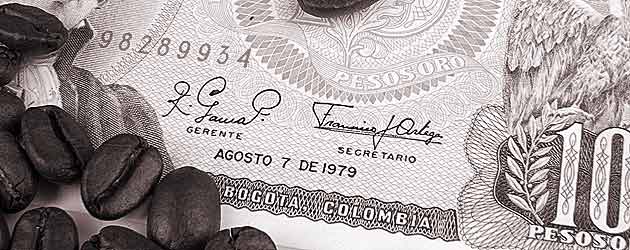Recently a friend asked why Intelligentsia Coffee and Tea coffee bag labels said “Direct Trade” instead of “Fair Trade,” and what the difference was. Of course, in my infinite wisdom of all things coffee, I proceeded to “BS” an answer that I think I heard someone tell someone they had heard (or read) sometime on the internet (maybe) or at a bar. I thought I might follow that up with some more reputable (er – wikipedia) research.
To start off, I should explain that this has mostly to do with a roasters purchasing process of coffee from the actual growers, and doesn’t have anything to do with the methods used to grow the coffee (like Organic vs Not Organic). Although the quality of coffee can and in many cases will be affected by this process, it’s meant more over to protect the coffee growers themselves.
Fair trade started unofficially in the 1940’s when churches in North America & Europe started purchasing items from Edna Ruth Byler, who sold items for women in poverty living in Puerto Rico. What she started later inspired the the organization ‘SELFHELP: Crafts of the world’ in Ohio, who changed their name to “Ten Thousand Villages,” Ten Thousand Villages is an Alternative Trade Organization (ATO) that offers both a higher price & more consistant sales by trading directly with the artisans.
This demand for fair trading started becoming important to buyers of coffee in 1988 when prices saw a rapid decent. A movement of people (unofficially called “Max Havelaar”) started demanding coffee to have some sort of labeling to show that coffee growers were paid fairly. Later (10 years later!) we start seeing little “Fair Trade Certified” stickers on roasted coffee packages. These stickers, though, cost money – since the certification process takes time and energy for coffee growers, brokers, and roasters.
There. Now that 1/2 of you have moved on to see what other articles there are here that have less abbreviations (ABRs from here on) and more actual fun content, I’ll answer my friends original question about Direct Trade.
Direct Trade, in a nutshell, means that a coffee roaster buys directly from the grower. At it’s heart, it has the same desire for fairness as Fair Trade, but without the standardization & strict rules. Roasters will sometimes actually visit the growers and have direct relationships. In some cases roasters will make much stronger commitments to the growers: paying higher rates than for “Fair Trade” coffee, encouraging farmers to have sustainable social practices, and more. It is all uncertified by outside party, however, but many roasters will openly publish their commitments to consumers.
But (and that’s a big “butt”) since all consumers are, as you know, lazy, Direct Trade won’t work if 1) roasters don’t publicize what their own standards are, and 2) consumers just buy no matter where the coffee came from, which they tend to do, as long as the package has “sometime something TRADE something something bla bla bla.”
Friend: Just ask. It’s that simple.
The Semi is the weekly school paper for Fuller Theological Seminary. Please let me know what you think, and what topics you’d be interested in for future articles. I love suggestions!
http://www.transfairusa.org/
http://www.fair-trade-hub.com/index.html
Intelligentsia’s Direct Trade Policy: http://www.directtradecoffee.com/


